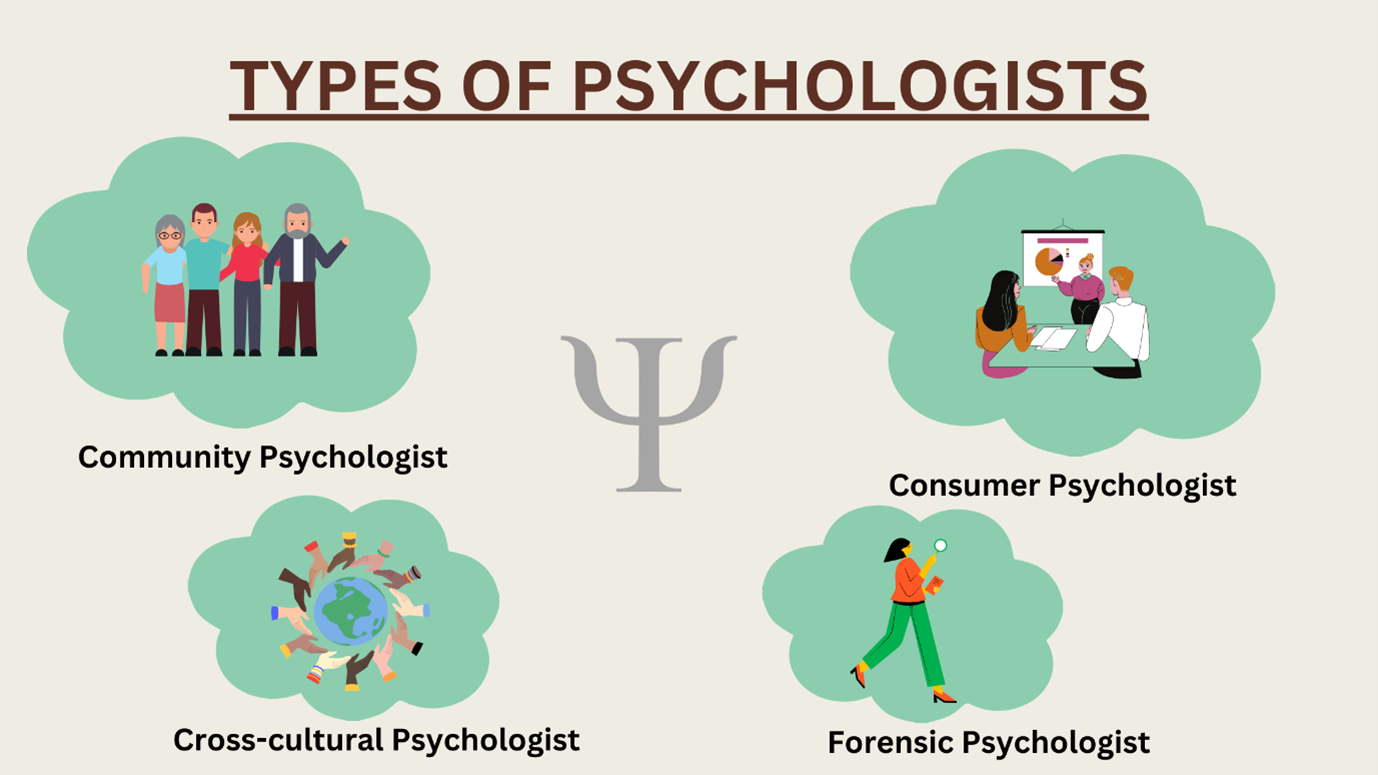Uncovering the Secrets of the Best Psychologist in Delhi for Anxiety Relief
Uncovering the Secrets of the Best Psychologist in Delhi for Anxiety Relief
Blog Article
Psych Therapy: A Comprehensive Overview to Strategies and End Results

Cognitive-Behavioral Therapy
Cognitive-Behavioral Therapy (CBT) is a commonly used psychotherapeutic approach that concentrates on recognizing and changing inefficient thinking and habits patterns. Developed in the 1960s by Aaron T. Beck, CBT combines cognitive and behavior concepts to resolve different psychological wellness problems, consisting of clinical depression, anxiousness, and stress-related problems. The facility of CBT is that maladaptive ideas add to emotional distress and maladaptive habits. By restructuring these thoughts, individuals can accomplish significant improvements in their psychological health and daily functioning.
CBT is defined by its structured, goal-oriented nature. Treatment commonly entails a joint procedure between the therapist and customer, where particular problems are recognized, and useful methods are created to address them. Methods such as cognitive restructuring, direct exposure therapy, and skill-building exercises are generally used. Cognitive restructuring involves difficult and modifying unfavorable thought patterns, while direct exposure therapy aims to decrease fear and anxiousness through progressive exposure to feared items or circumstances.
Evidence-based research supports the effectiveness of CBT for a variety of psychological problems - Best Psychologist in Delhi. Its focus on ability acquisition and self-help techniques encourages clients to continue development separately after treatment ends. The flexibility and effectiveness of CBT have made it a cornerstone in modern psychotherapeutic method
Psychodynamic Methods
Rooted in the very early concepts of Sigmund Freud, psychodynamic techniques concentrate on checking out the unconscious mind and its impact on behavior and emotions. These approaches aim to discover hidden ideas and sensations that may be driving maladaptive habits and psychological distress. Central to this method is the concept of inner problem, typically originating from unresolved past experiences, specifically those from childhood.
Therapists utilizing psychodynamic techniques employ several crucial techniques, including free organization, where people are encouraged to talk freely to disclose subconscious material, and dream evaluation, which interprets the latent content of desires. In addition, the expedition of transference and countertransference characteristics within the healing partnership is critical. These interactions can offer insights into the client's interior world and relational patterns.
Psychodynamic treatment is commonly longer-term contrasted to other modalities, providing a comprehensive and deep understanding of the person's psyche. Research study suggests that it can be specifically effective for intricate mental wellness problems, such as individuality conditions and persistent anxiety. By cultivating self-awareness and psychological understanding, psychodynamic therapy seeks to bring subconscious product to consciousness, allowing individuals to attain significant and long lasting adjustment in their lives.
Humanistic Strategies
Building on the structures laid by psychodynamic approaches, humanistic strategies supply a distinctive viewpoint concentrated on individual possible and self-actualization. Stemming in the mid-20th century, these methods prioritize the inherent benefits and development capacity of individuals, highlighting a holistic view of human experience. Trick figures such as Carl Rogers and Abraham Maslow have actually dramatically influenced this healing technique, which incorporates techniques like client-centered treatment and Gestalt treatment.
Client-centered treatment, developed by Rogers, plays a crucial function in humanistic strategies. It relies on the specialist offering a setting of genuine positive respect, empathy, and congruence. This cultivates a safe space for visit the website clients to discover their sensations and experiences without judgment, assisting in self-discovery and individual development. The therapist's role is more of a facilitator than an authority, motivating clients to harness their internal sources for healing.
Gestalt therapy, an additional vital humanistic technique, emphasizes existing minute awareness and the combination of mind and body. By focusing on the "present moment," clients get better insight into their existing feelings and habits. Strategies such as role-playing and led visualization are commonly used to aid clients get a deeper understanding of themselves, inevitably causing boosted self-awareness and gratification.
Integrative Treatments
Integrative treatments stand for a synthesis of numerous restorative strategies tailored to meet the special requirements of each customer. This strategy acknowledges the complexity of human psychology and the diverse nature of psychological health problems. By combining components from various schools of psychiatric therapy-- such as cognitive-behavioral treatment (CBT), psychodynamic therapy, and humanistic approaches-- integrative therapies provide an even more adaptable and all natural treatment standard.
Professionals of integrative treatment assess each client's details requirements, signs and symptoms, and individual history to create a customized treatment strategy. This personalized approach boosts the possibility for therapeutic success by attending to the source of psychological distress and advertising general well-being. Techniques might include mindfulness exercises, cognitive restructuring, and psychological processing, each selected to target various facets of the client's issues.
Moreover, integrative therapies highlight the restorative relationship, checking out the client-therapist bond as an essential component of effective treatment. This partnership cultivates an encouraging atmosphere where clients really feel secure to discover and address their worries. The versatility of integrative therapies makes them suitable for a wide series check of conditions, consisting of anxiety, anxiety, trauma, and social problems, thereby boosting their applicability and efficiency in varied clinical settings.

Gauging Therapy Outcomes
Assessing the performance of psychotherapy is crucial for both medical professionals and clients to make certain that the therapy is generating the wanted results. To accomplish this, different techniques and devices are utilized to measure treatment outcomes systematically. Standard analysis instruments, such as the Beck Clinical Depression Stock (BDI) and the Generalized Anxiousness Disorder 7 (GAD-7), supply quantitative information on symptom severity and modifications in time.
In addition to standard tools, qualitative techniques like client self-reports and scientific meetings use useful insights right into the personal experiences and viewed development of clients. On a regular basis arranged he said analyses, typically at the start, middle, and end of therapy, help in tracking the trajectory of improvement or recognizing locations needing change.
Outcome measurement is not restricted to symptom reduction; it likewise encompasses functional improvements in life, such as far better interpersonal relationships, enhanced work performance, and improved total well-being. Modern improvements in electronic wellness have actually presented mobile applications and online platforms that facilitate real-time surveillance and feedback, even more fine-tuning the analysis process.
Eventually, a detailed strategy to measuring therapy results guarantees that healing interventions work, effective, and tailored to meet the individual demands of customers, thereby enhancing the general healing experience.
Verdict
Psychiatric therapy uses a diverse selection of techniques focused on addressing particular mental health problems and improving overall wellness. Cognitive-Behavioral Therapy and psychodynamic methods target inefficient thoughts and unconscious impacts, respectively. Humanistic techniques concentrate on personal growth and self-actualization, while integrative treatments integrate numerous techniques for tailored therapy plans. Examining therapy end results via standard evaluations and qualitative techniques ensures an extensive understanding of efficiency, eventually leading customers toward sustaining psychological health improvements.
From the structured approach of Cognitive-Behavioral Therapy (CBT) to the deep exploration of the subconscious in psychodynamic therapy, each method brings unique advantages. Its focus on ability procurement and self-help techniques empowers customers to proceed progress independently after treatment wraps up (Best Psychologist in Delhi). Key figures such as Carl Rogers and Abraham Maslow have considerably influenced this therapeutic strategy, which encompasses approaches like client-centered treatment and Gestalt treatment

Report this page